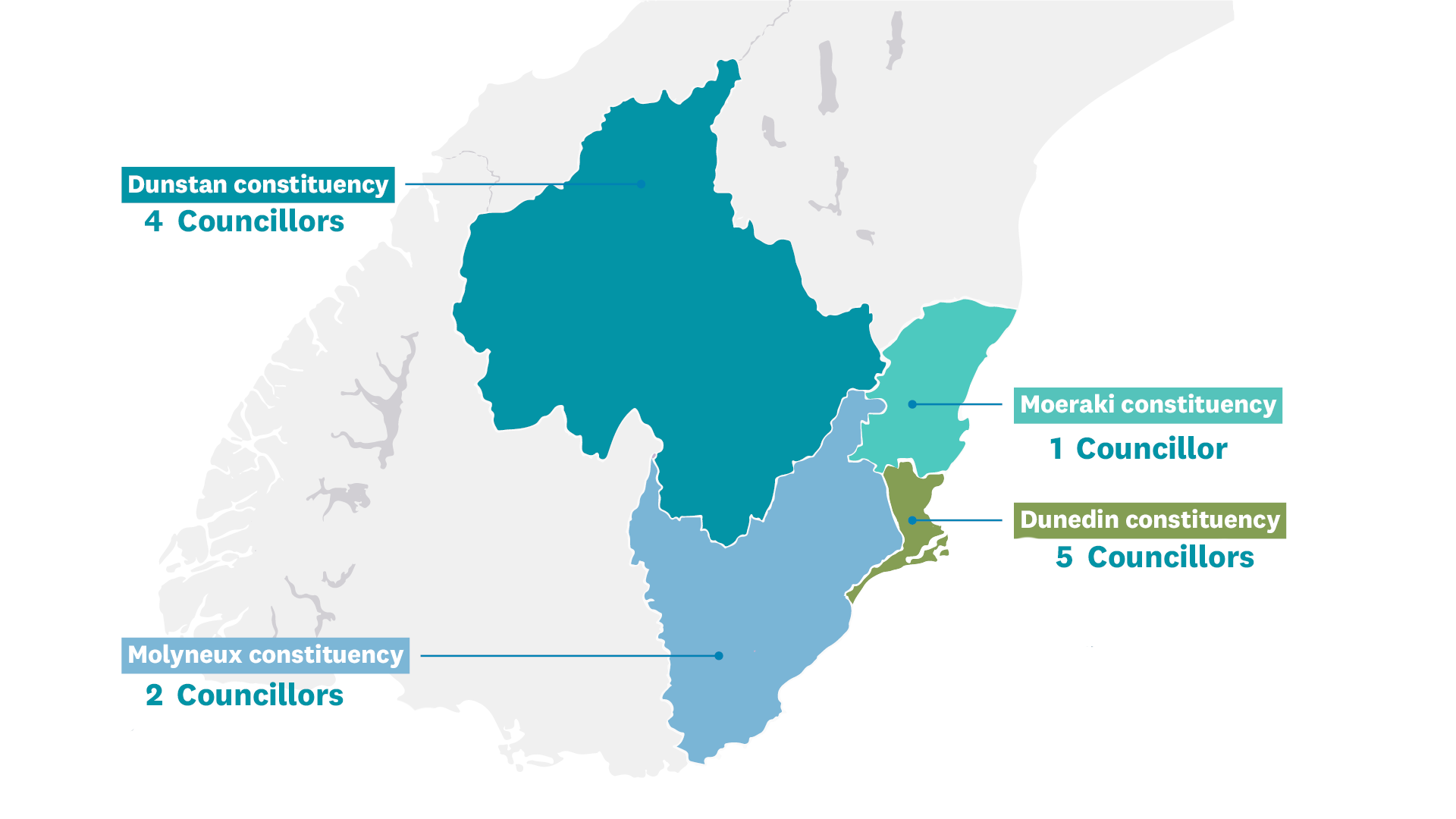-
-
-
Before standing
-
-
-
-
-
-
-
-
-
-
-
-
-
What matters to you in your community? Whatever needs changing, you could be the person to change it by becoming an ORC councillor. Know someone great? Encourage them to stand!
As an elected member, no two days are the same. You will:
- be a part of governing the third-largest region in New Zealand
- help decide how funding is allocated
- make decisions that will help define the future for our communities
- decide:
- how to meet the current and future needs for flooding infrastructure
- climate change mitigation
- transport services
- protecting the health of Otago’s land and water
- make decisions about regulation policies
- attend council meetings
- hold ORC to account and maintain oversight of compliance with legislative obligations, including financial reporting, risk and audit.
On any given day, an ORC councillor may:
- read and prepare for upcoming meetings
- vote in various decision-making meetings and committees
- engage with the public to hear their views
- attend events like public meetings and public consultation drop-in sessions
- represent the council at community events, like local A&P shows
- take part in community activities, like a working bee for a local stream regeneration project.
On top of this, there will also be opportunities to be on working groups, projects and champion specific issues.
Regional councils are democratic organisations.
- Councillors are elected by the local population every three years. This period of service is called a triennium.
- A Chairperson is elected by the councillors.
- Teams of staff run the day-to-day operations and report to the Chief Executive.
Environmental management: managing the use of land, air, water, and coastal waters. This includes flood control, air and water quality, and pest control.
Natural resource management: managing land, air, and water resources sustainably. This includes supporting biodiversity and biosecurity.
Regional transport: planning and contracting passenger services, and managing harbour navigation and safety.
Regional emergency management: preparing for and responding to emergencies and natural disasters.
Regional policy: developing regional policy statements.
Community wellbeing: promoting the economic, social, cultural, and environmental wellbeing of the region.
Otago is made up of four constituencies. Each councillor serves their own constituency, representing the main issues for their area in council discussions and financial spending, and Otago as a whole at a national level.
In a regional council, the term ‘constituency’ is used rather than ‘ward’.

Remuneration for local body officers is set by the government, under the Remuneration Authority Act 1977 and parts of the Local Government Act 2002.
Base rates for the 2024/2025 years:
| Office | Annual remuneration ($) |
|---|---|
| Regional Council Chairperson | 158,538 |
| Regional Council Deputy Chairperson | 88,009 |
| Councillor with no additional responsibilities | 67,405 |
| Councillor (minimum allowable remuneration) | 52,714 |
More information about how payment is set, rates from previous years, and allowances that can be received are available on remauthority.govt.nz
Candidate nominations open for approximately one month, with opening and closing dates announced when election date is confirmed.
Applications will not be checked or processed outside this period.
You need two people to nominate you using the official nomination form.
The people who nominate you must be aged 18 or older, and enrolled to vote in the area you wish to stand in.
You may not nominate yourself.
You must consent to your nomination by signing the official nomination form.
Please send your completed nomination form to the Electoral Officer with a $200 deposit, which may be refundable in some cases.
In New Zealand, having a criminal record does not necessarily disqualify someone from running in local elections. However, there are specific restrictions:
- You cannot stand for election if you have been convicted of a corrupt practice and are on the Corrupt Practices List.
- You cannot run if you are currently serving a prison sentence of three or more years.
You must be a New Zealand citizen and be a parliamentary elector anywhere in New Zealand. You don’t need any formal qualifications. Elected members come from all walks of life and generally have a desire to serve their community.
No, you don’t. However, you must be:
- a New Zealand citizen
- enrolled on the New Zealand electoral roll
- nominated by two electors from the area (constituency) you are standing for.
To stand for local body elections you must:
- be a New Zealand citizen
- be on the electoral roll
- be nominated by at least two electors from the area you are standing for
- pay a deposit
- not be a current council employee
- not be an undischarged bankrupt.
There aren't many requirements or restrictions for standing; however, you need to make sure that you are eligible to vote.
If you have any questions regarding the nomination process or anything else related to standing as a regional councillor for the Otago Regional Council, you can contact us.
Phone: 0800 474 082
Email: elections@orc.govt.nz

Are you enrolled?
Want to vote on the future of the Otago region? You need to be enrolled.

Before standing
Care about here? Stand for Otago.

Ready to vote?
Choose a candidate who represents you! Find out how to vote, where to vote, and when you can vote.

How does Single Transferable Vote work?
Make sure your vote counts in the local body elections. You do not need to rank all candidates, just those you prefer most.

